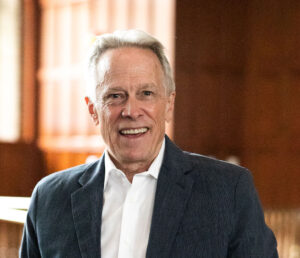A friend and I were discussing his move from thirty years of successful corporate life to the exciting world of self-employment. Being that I “haven’t had a job” in almost thirty years, he’d come to me to see if I couldn’t accelerate his learning curve. We also wanted to see if there were opportunities we might take advantage of together. So we had a full day of discussion, clarifying and brainstorming, but it left me wondering why several times during the day I would see patterns and truths that he had yet to recognize.
It came to me when I thought back to when I’d heard the learning process compared to putting together a 1,500 piece puzzle. In the beginning, it takes days and days and you don’t see anything. Then, finally the puzzle’s picture comes together and it gets easier and easier to see the further you go. In this case, although we were now working the same puzzle, I’d simply been at it a lot longer and had put more of the pieces of that particular puzzle in place.
There’s another lesson I learned in the process as well. While my friend and I were both in the business of developing human performance, this type of puzzle is where it gets personal. We are all on our own personal path. Alone. One size does not fit all. The path is ours alone. Sometimes we’re on it blind; sometimes we’re moving with light, purpose and intention. My path is different from yours, different from my friend’s – and neither he nor I are better or worse for that variance.
It’s your path. What I fill my life with, including my profession, is my path, not yours, not my brother’s, not my friend’s, my wife’s or my kids’ path. It is distinctly mine. In fact it now makes me think of Gandhi’s words;
“Your beliefs become your thoughts; your thoughts become your words; your words become your actions; your actions become your habits; your habits become your values; your values become your destiny.”
In my mind, this destiny is what results in my path in life. It’s my path. How much of our lives do we spend comparing other’s paths, judging other’s paths, tending other’s paths, and even making over our paths in the likeness of another’s path? Of late, I often hear a cute phrase in reference to minding one’s own business; “not my monkey, not my zoo”. I think I’ll just restate that to be “not my path,” and to dedicate myself … to my path. That doesn’t mean I will be blind or unfeeling to the paths of others. Just the opposite in fact, especially if I can reach back to someone newer to a similar path and reveal the puzzle to them.
And as a practicing leader and coach, I can do more. Let’s do something different – we can’t help but get better:
- Study the puzzle – make a list of five plus or minus two key descriptors that adequately describe your professional path to date.
- Reveal the puzzle – seek out someone you know on a professional journey that is similar to yours, but who is much newer to it. Ask them if you might teach them what you now “see” of the puzzle.
My bet is they will gladly accept your help. I also believe you can save them time, money and sweat equity in the bargain.
-Don Brown
don@donbrown.org
Don Brown dedicates his career to ‘helping people with people’ in leadership, sales and customer service. Bilingual and experienced at the executive and line-level alike, you see the results of his work across dozens of industries, including brewing, automotive, airline, banking and medical equipment.
Speaking, writing, coaching and selling to the best – Ford Motor Company, Anheuser-Busch, United Airlines, Harley-Davidson, Jaguar Cars, Hilton Hotels and many, many more – Don takes great pride in long-standing customer relationships (some running well over twenty years).


